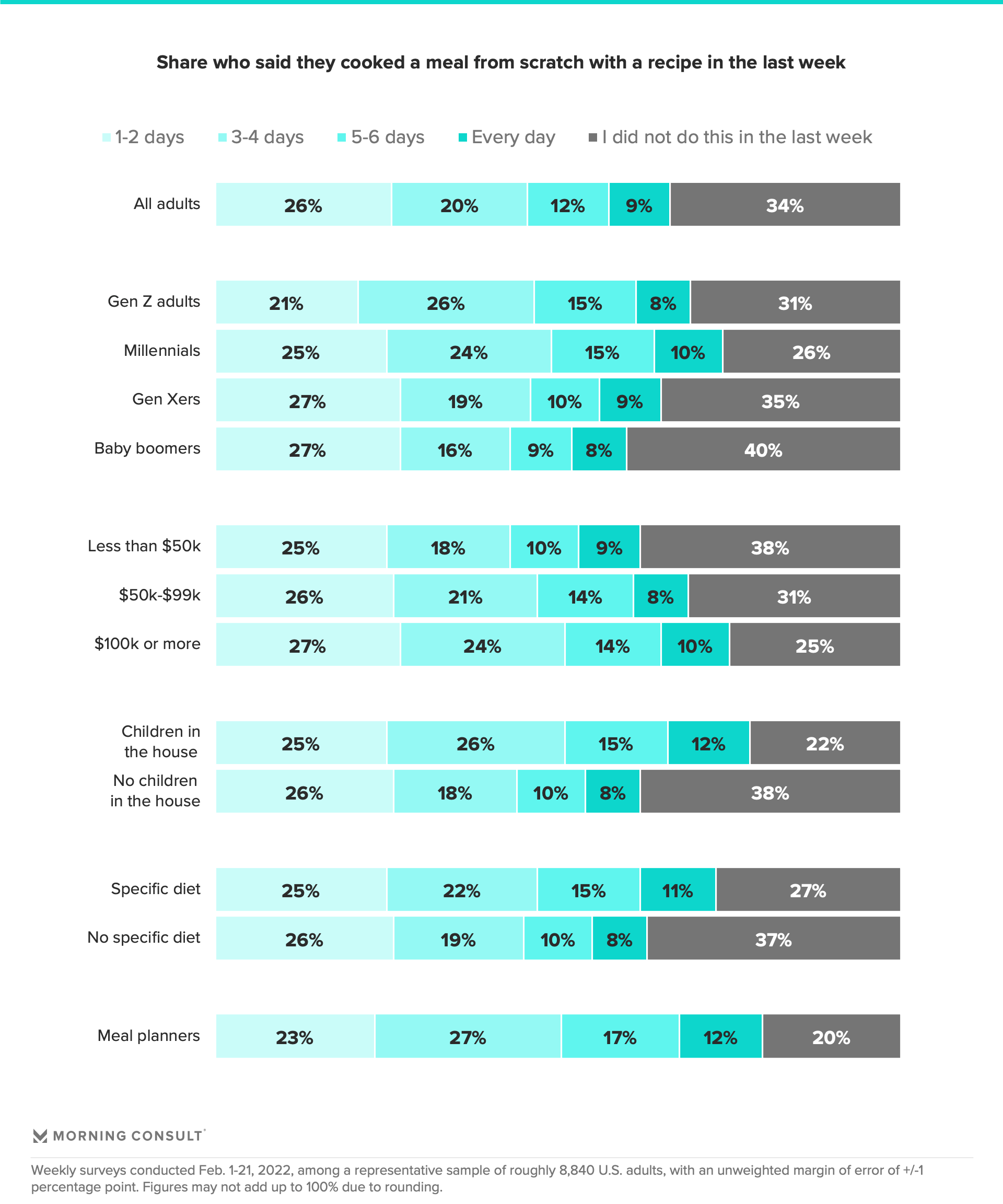Consumers Are Avid Recipe Users: Understanding Recipe and Non-Recipe Occasions

To better understand consumers' current cooking habits, Morning Consult conducted a series of weekly surveys in February 2022 on how people are eating and preparing food. This research is part of a collection. Click here for a breakdown of how and when consumers are cooking and here for a deep dive on the attractive demographic of meal planners.
For food & beverage brands, recipe content is a crucial consumer retention and prospecting tool — not only can recipes inspire consumers to purchase and try products they’ve never used before, but they can also foster lifelong brand loyalty.
Morning Consult research shows that consumers frequently use recipes: Two-thirds of U.S. adults said they cooked with a recipe at least one day in the past week, and nearly 10% said it’s a daily occurrence.
The demographic groups cooking most frequently with recipes are the same that are most likely to say they plan meals, including millennials, higher-income consumers and those with children in the household. For brands, these higher-spending demographic groups can bring big potential returns on relatively low investments in recipe content.

But there’s still the 34% of adults who said they didn’t cook with a recipe in the past week. Key factors that help consumers determine whether to use a recipe include experience with cooking, creativity of recipes and meal simplicity.
For some, cooking experience is a big reason for not needing recipes: Nearly 4 in 10 baby boomers (39%), who cook dinner at home far more often than millennials, said they cooked without a recipe at least five days in the past week, whereas only around 3 in 10 millennials (31%) said the same. As one baby boomer respondent put it, “I am an old lady and a good cook. I no longer need recipes for most things. It's easy for me to put things together on my own.” Recipe content can encourage less experienced cooks by emphasizing skills and techniques.

Consumers expressed divided opinions about the creative element of recipes. Some consumers feel improvising without recipes is a chance for self-expression and experimentation. Others seek recipes to inspire creativity when trying a new dish or cuisine. A successful recipe content strategy should merge practical guidance with tips on how cooks can add their own flourish to dishes.
Above all else, consumers cited simplicity (“I cooked an easy meal [pasta] and didn’t need a recipe”) or knowing what they are making “by heart” as reasons for not using a recipe. For these occasions when recipes don’t come into play, convenient products and trusted brands are often go-to solutions.
Emily Moquin previously worked at Morning Consult as a lead food & beverage analyst.